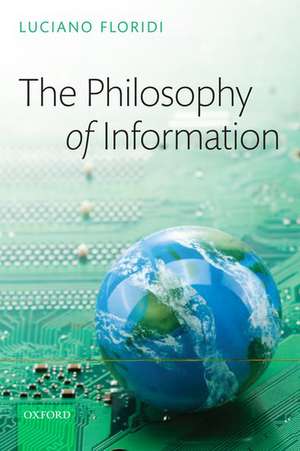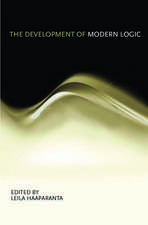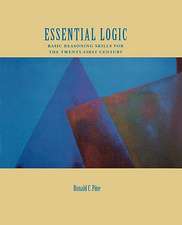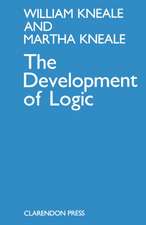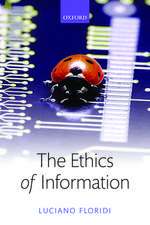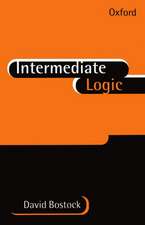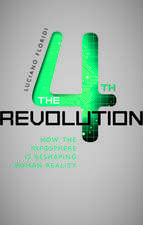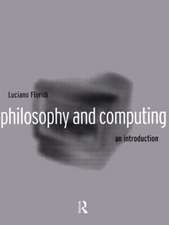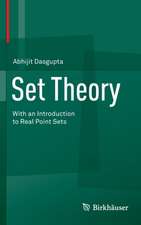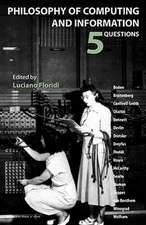The Philosophy of Information
Autor Luciano Floridien Limba Engleză Paperback – 10 ian 2013
| Toate formatele și edițiile | Preț | Express |
|---|---|---|
| Paperback (1) | 304.42 lei 31-37 zile | |
| OUP OXFORD – 10 ian 2013 | 304.42 lei 31-37 zile | |
| Hardback (1) | 597.59 lei 31-37 zile | |
| OUP OXFORD – 27 ian 2011 | 597.59 lei 31-37 zile |
Preț: 304.42 lei
Nou
Puncte Express: 457
Preț estimativ în valută:
58.25€ • 60.98$ • 48.20£
58.25€ • 60.98$ • 48.20£
Carte tipărită la comandă
Livrare economică 26 martie-01 aprilie
Preluare comenzi: 021 569.72.76
Specificații
ISBN-13: 9780199232390
ISBN-10: 0199232393
Pagini: 432
Dimensiuni: 168 x 233 x 22 mm
Greutate: 0.66 kg
Editura: OUP OXFORD
Colecția OUP Oxford
Locul publicării:Oxford, United Kingdom
ISBN-10: 0199232393
Pagini: 432
Dimensiuni: 168 x 233 x 22 mm
Greutate: 0.66 kg
Editura: OUP OXFORD
Colecția OUP Oxford
Locul publicării:Oxford, United Kingdom
Recenzii
The impressive and exciting project that Floridi undertakes in his book is aimed at establishing the philosophy of information as a mature subdiscipline of philosophy, with its own method and research programme ... Floridi's book not only presents a comprehensive framework for the philosophy of information but also makes a strong case for its legitimacy as a mature subdiscipline of philosophy. The intellectual debates and new research that it has already stimulated testify to its importance as a significant contribution to the literature.
The non-technical portions are understandable to everyone and provide plenty of food for thought.
This is a monumental work ... Floridi goes through much of contemporary philosophy, as seen through a lens fashioned from the concept of information ... The Philosophy of Information is a lovely source of ideas, and also a wonderful indication of how much there might be to gain for philosophy by looking at contemporary computer science.
This is an ambitious book ... there is a great deal to admire in this book, including much to admire philosophically. For example, some of the material on epistemology, especially Ch. 13 but also some of his work on the definition of knowledge, is masterful ... this an intriguing, eye-opening work
Given the breadth and depth of coverage of all its topics, the careful organisation and structuring of concepts, and the relevance of its contents, The Philosophy of Information shall be deemed essential reading for philosophers and computer scientists alike, especially those interested in Artificial Intelligence.
Just around the beginning of the new millennium, Floridi began his important and influential program, and this book brings between two covers much of his previous work, and also augments, updates, and connects these publications ... Floridis book sets an ambitious agenda for the philosophy of information ... there is much of interest and value in this major book.
The Philosophy of Information is clearly a work of great ambition, originality, and value.
Very well written, and clearly presented. ... many authors have written about philosophy and information before, but no-one has set out to deal with it in such a thorough way. This is clearly a very important book, and I think it justifies the author's claim that it describes the first philosophical analysis of information in all its aspects.
The non-technical portions are understandable to everyone and provide plenty of food for thought.
This is a monumental work ... Floridi goes through much of contemporary philosophy, as seen through a lens fashioned from the concept of information ... The Philosophy of Information is a lovely source of ideas, and also a wonderful indication of how much there might be to gain for philosophy by looking at contemporary computer science.
This is an ambitious book ... there is a great deal to admire in this book, including much to admire philosophically. For example, some of the material on epistemology, especially Ch. 13 but also some of his work on the definition of knowledge, is masterful ... this an intriguing, eye-opening work
Given the breadth and depth of coverage of all its topics, the careful organisation and structuring of concepts, and the relevance of its contents, The Philosophy of Information shall be deemed essential reading for philosophers and computer scientists alike, especially those interested in Artificial Intelligence.
Just around the beginning of the new millennium, Floridi began his important and influential program, and this book brings between two covers much of his previous work, and also augments, updates, and connects these publications ... Floridis book sets an ambitious agenda for the philosophy of information ... there is much of interest and value in this major book.
The Philosophy of Information is clearly a work of great ambition, originality, and value.
Very well written, and clearly presented. ... many authors have written about philosophy and information before, but no-one has set out to deal with it in such a thorough way. This is clearly a very important book, and I think it justifies the author's claim that it describes the first philosophical analysis of information in all its aspects.
Notă biografică
Luciano Floridi is Professor of Philosophy and Ethics of Information at the University of Oxford, Senior Research Fellow at the Oxford Internet Institute, and Fellow of St Cross College, Oxford. Among his recognitions, he has been appointed the Gauss Professor by the Academy of Sciences in Göttingen, and is recipient of the APA's Barwise Prize, the IACAP's Covey Award, and the INSEIT's Weizenbaum Award. He is an AISB and BCS Fellow, Editor in Chief of Philosophy & Technology and of the Synthese Library, and was Chairman of EU Commission's 'Onlife' research group. His most recent books are: The Philosophy of Information (OUP, 2011), Information: A Very Short Introduction (OUP, 2010), and The Cambridge Handbook of Information and Computer Ethics (CUP, 2010).
